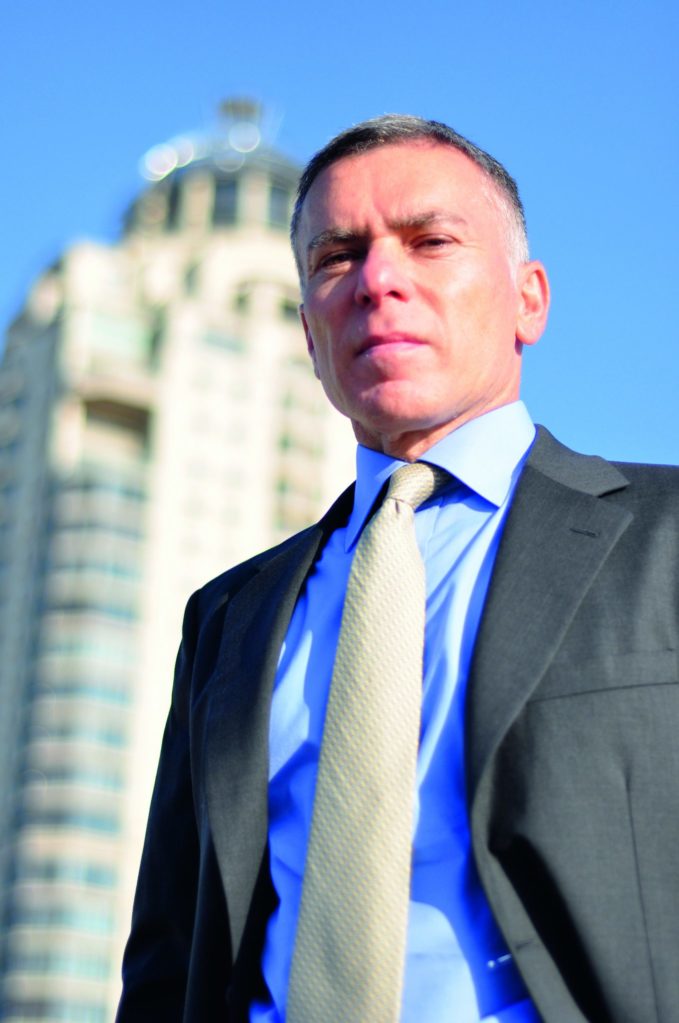Adrian Gore, South Africa’s undisputed king of health insurance, has done pioneering stuff before—as a matter of fact that’s all he has done since the day he founded Discovery 20 years ago—but none as daring as his latest venture.
In a world where Africa has become China’s happy hunting ground, Gore is hunting in the opposite direction.
Discovery recently bought 20% of Ping An Health Insurance, a wholly-owned subsidiary of China’s biggest, and the world’s second largest, insurance company.
“It could have been a much bigger stake, were it not for the strict Chinese foreign ownership rules that prescribe that outsiders can own a maximum of 20%,” says Gore.
Discovery is hungry for global expansion. It surpassed expectation in their forays into the United States of America and Britain, buying up Destiny Health in the US and 50% of Prudential Health in London.
China offers a compelling opportunity and a vast number of customers. China has more than 1.3 billion people, compared to the 50 million in Discovery’s home territory of South Africa. China spends R2 trillion ($237.6 billion) a year on health, South Africa’s R250 billion ($29.7 billion) pales by comparison.
Gore is the first to admit, though, that medical insurance is not something the Chinese do, or know, but all this is about to change.
“The health market in China is going to be huge, one gets a sense that if you get in early you can help shape the system,” says Gore.
His confidence stems from the Chinese government’s plan to introduce major health reforms, including health insurance.
“Chinese private companies are already buying health insurance in huge quantities, while individuals are already starting to buy what they call social health insurance. There are many Asians that understand this stuff. It’s more effervescent.” And sure to help the situation is the strong culture of self-medication and check-ups among the Chinese, what Gore says is an established “prevention mindset”.
Discovery’s entry into China is through its flagship Vitality product, which according to Gore, is the world’s largest incentive-based wellness program.
Vitality encourages healthy behavior that reduces long-term healthcare costs by rewarding members who do things that improve their health by going to the gym, eating healthier and getting regular health assessments. Gore believes Vitality helps to reduce both the occurrence and severity of diseases like obesity, diabetes, heart disease and cancer.
“I feel very strongly that business must have a social purpose. I don’t mean that in a soft, CSI [corporate social investment] way. Business is about progress. We try to create progress for society. A business must straddle innovation and prudence at the same time.”
“I actually think—and I’m not drawing parallels—the Apple obsession with products, is similar to ours. When we started out, our competitors in the medical aid space used to go to boardrooms. We sold our products on the road. I’m a product junkie. I find that inspiring. I’m an actuary by training, but I’m not inspired by money, but by progress.”
Also, he says, gone are the days where people put money in, and never got something out. In China, Discovery and Ping An have already struck deals with China Airlines and fuel retailers for discounts.
“Health and life insurance are typically grudge purchases. Our fundamental success in this market has been making health insurance sexy, cool, accessible and different,” says Gore.
To mark their entry into the market, Discovery and its partners are targeting in excess of 100 million Chinese who are in the middle to affluent bracket; 80% of whom pay for healthcare out of their own pocket. The good news is that Discovery is not going to do the on-the-ground slogging; the potential risk may come with vast cultural differences.
Ping An—which has 70 million customers and is serviced by close to half a million brokers—will do all the selling. Discovery will focus on building the underlying insurance company.
Gore maintains there’s no pressure to make this venture immediately profitable.
“Our approach, generally, is that you don’t bet family jewels in any one transaction. So, at end of the day, if something goes wrong, it doesn’t dramatically affect us. We haven’t committed huge amounts of capital. It’s as aggressive as we can go, but on the other hand, if it’s a complete and total failure, it doesn’t dramatically affect us.”
“If you’re building the underlying insurance company, that takes time. We’ve grown our earnings per share at 25% a year for 20 years. If China takes time, I won’t be concerned.”
Put to him, that his shareholders may have gotten used to quick gains and may no longer be the patient bunch they once were, when they started, Gore maintains: “Our shareholders—and I’m one of them—are long-term focused.”
One of few African successes in China has been Tencent, an internet business owned by South African multinational Naspers. Last year, China alone contributed R2.1 billion ($251 million) to Naspers’ core headline earnings of R5.3 billion($634 million). Interestingly though, Naspers CEO Koos Bekker could only attribute his company’s success to “simply, bloody luck.”
Gore says his industry “is slightly different. You’ve got to do the basics well, build quality relationships with your partners, regulators, and so on. It’s a tough market, and you’ve got to be brilliant”.
“We’ve spoken to a lot of people. We’ve done a lot of work. We’ve got a good feel for all the issues. In China, the relationships and trust are very important. The advantage of being an African company is that you do those things anyway.”
